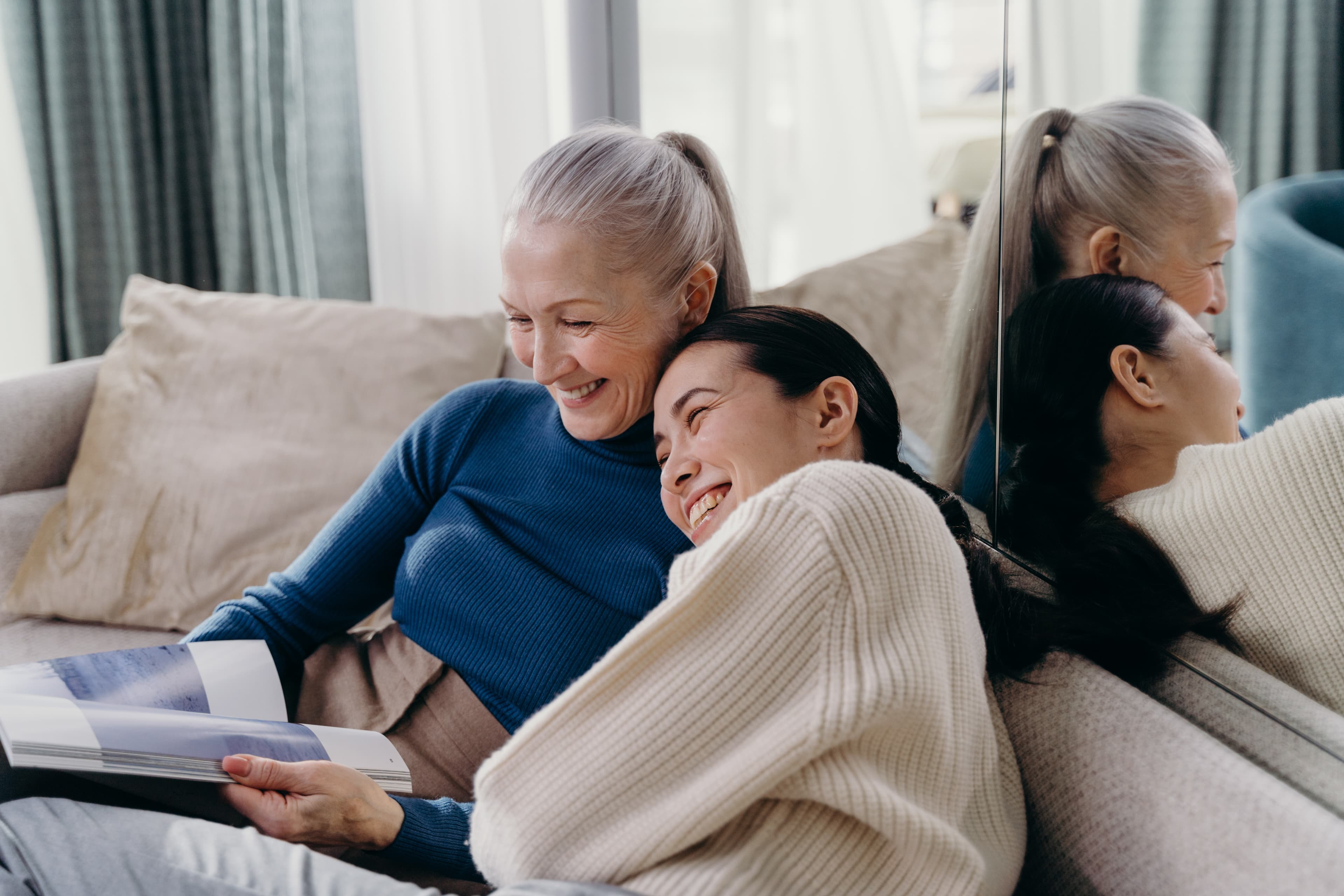Home Safety Matters: Bedroom Safety Tips for People with Alzheimer's and Dementia

Written by Chad Birt on Fri Jun 10 2022.

Caring for someone with a neurodegenerative disease presents various home safety challenges. If you want to reduce the risk of accidents and injuries, it's crucial to create an environment that's open, easy to navigate, and free of potential hazards.
As a caregiver, it's necessary to enhance safety throughout your entire home, but today we're focusing on the bedroom, specifically. Considering that June is National Safety Month, there's no better time to start making upgrades.
Why is bedroom safety so important?
The bedroom is a place to wind down and relax at the end of the day. But some of the things that make it so cozy –– like dim lighting, fluffy bedspreads, and lots of pillows –– also present risks to people with cognitive decline, low vision, and limited mobility.
Elizabeth Landsverk, MD, a San Franciso-based geriatrician who specializes in the treatment of dementia and Alzheimer's, and the author of Living in the Moment, says that if you have a family member with a neurodegenerative condition, bedroom safety, should be a top priority.
Considering that one out of four older Americans falls each year, it's best to focus on clutter. "Remove tripping hazards like loose rugs and electrical cords, and make sure the bed is low enough to prevent falls," Dr. Landsverk said. "Install nightlights and keep the bedroom well-lit. This will help your loved one navigate the space safely at night."
If you're concerned about wandering, Dr. Landsverk recommends a bedroom monitor. "This will allow you to check on your loved one throughout the night without disturbing their sleep. It's also a good idea to keep a list of emergency numbers by the bedside. "In the event of an accident or fall, you'll be able to quickly get help."
What are some easy bedroom upgrades that family caregivers can make?
There are several upgrades you can make to enhance bedroom safety for your loved one, including:
A Hi/Low Electric Bed
"Choose a bed that's easy to get in and out of," Dr. Landsverk said. "A hi/low electric bed, with a soft mattress overlay is critical for people who fall often. A bed is the one place where your loved one doesn't need to be directly supervised."
Keep the windows closed and the shades drawn
A soft breeze can increase airflow, but for people with dementia, the rustling of the blinds could be misperceived as an intruder. The same goes for people walking around outside. Keep the curtains closed just in case.
Keep decorations to a minimum
Some decor is fine, but keep it minimal. "Be aware that some people with dementia react to the people in photos or mirrors thinking it's another person," Dr. Landsverk said. "Adjust as needed. Sometimes, mirrors need to be removed.”
Make a clear path to the bathroom
Many people 65 and older have to get up several times a night to use the toilet. To reduce the risk of a fall, clear a path from the side of the bed all the way to the bathroom. Install several lights along the pathway to make navigation easy. You might also want to consider putting a commode next to the bed.
Install handrails
Neurodegenerative conditions increase the risk of balance problems and muscle weakness. Installing railings or grab bars next to the bed, along the walls, and by the door can encourage independence and help your loved one stay on their feet.
Install an alarm on the bedroom door
"It's normal for people with Alzheimer's or dementia to get up during the night," Dr. Landsverk said. "This can be due to many things, including changes in their sleep pattern, confusion, anxiety, or hallucinations. Installing an alarm can prevent them from leaving the house or doing something else that might hurt them."
Turn off the TV
If there's a television in the bedroom, consider turning it off.
"Your loved one might have delusions or think that what they see on the TV is real, especially the nightly news," Dr. Landsverk said. "It's better to spend some time together, playing simple games like dominos or listening to music."
Where can I buy products to enhance bedroom safety?
Here at Carewell, we carry various products designed specifically for bedroom safety, including:
The McKesson Wall Grab Bar
The McKesson wall grab bar adds safety and support to any room in your home. It can be mounted vertically or horizontally and is capable of withstanding between 300-500 pounds. Install one grab bar next to the bed and another beside the bedroom door, to the right of the doorknob.
McKesson Commode Chair with Fixed Arm
If your senior regularly gets up during the night to use the toilet, install a commode next to the bed. This commode chair from McKesson can hold up to 350 pounds. It's lightweight, folds flat, and features plastic armrests for comfort and support.
Skil-Care Magnetic Door Alarm System
Worried about your loved one getting up and leaving the house at night? This magnetic door alarm from Skil-Care can provide peace of mind. Simply attach it to the bedroom door or window and arm it. Really, it’s that easy!
McKesson Glow in the Dark Folding T-Handle Cane
This folding cane from McKesson is specifically designed for nighttime use. It's ergonomic, can support up to 300 pounds, and is capable of maneuvering narrow areas, like staircases.
We hope you’ve found these bedroom safety tips helpful. If you have questions about making your home environment safer, please reach out to our friendly Care Specialists. Call (800) 696-CARE during normal business hours or send an email to support@carewell.com.
Other Articles You May Like

Dementia & Alzheimer's Care
More than 11 million Americans provide unpaid care for people with Alzheimer's and other dementias. Learn about signs and symptoms, plus some of our most popular Alzheimer's care products.
Continue reading. >
Home Improvement: Upgrades and Home Renovations for Improved Senior Safety
Home renovations are an investment upfront, but in the grand scheme of things, these changes are often more affordable than long-term care at a nursing home or assisted living facility.
In this blog, we’ll look at several senior-friendly upgrades.

Chad Birt is a freelance medical writer who resides in Astoria, Oregon. When he isn't behind a keyboard, you can find him hiking, camping, or birdwatching with his wife Ella and their two dogs, Diane and Thoreau.